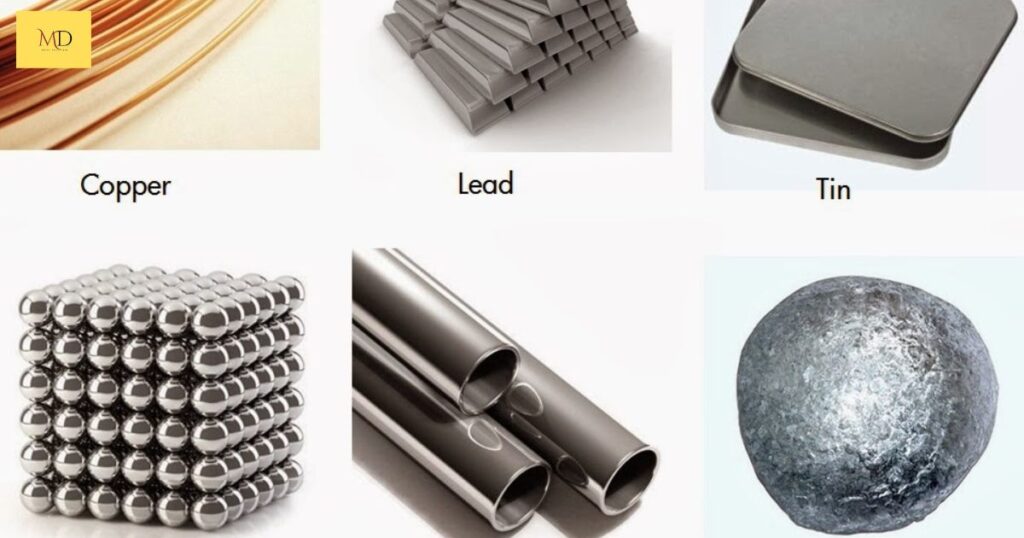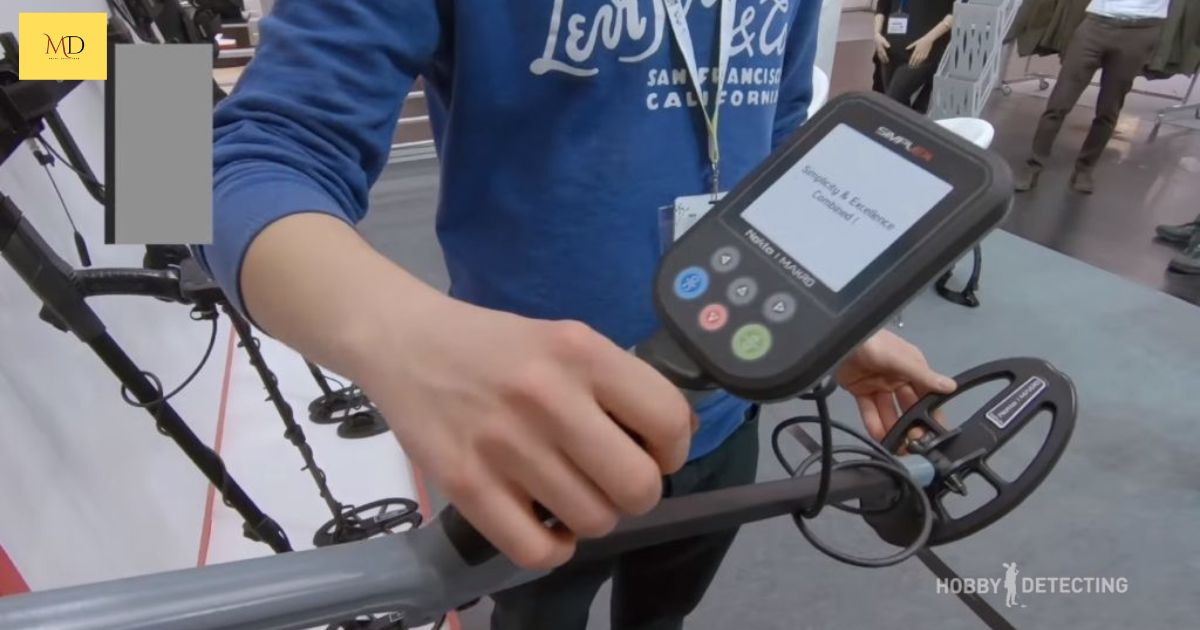Metal detectors are devices that use electromagnetic fields to locate metallic objects. They work by generating a magnetic field and detecting disruptions caused by metal nearby. Commonly used in security screenings, archaeology, and treasure hunting, they help identify hidden metal items.
Ever wondered if metal detectors can uncover the stealthy presence of titanium? Join us on a journey of discovery as we explore the fascinating capabilities of these electromagnetic marvels. Curious minds, let’s unravel the mystery together can metal detectors truly detect titanium?
Metal detectors can detect titanium, although it depends on the type of metal detector and the composition of the titanium alloy. Titanium is a non-ferrous metal, which means it lacks magnetic properties, making it more challenging for some detectors. However, advanced detectors with specific settings can successfully identify and signal the presence of titanium, making them versatile tools for various applications, from security screenings to industrial uses.
Applications and Significance
Metal detectors play a pivotal role in various sectors, with one of their key applications being security screening. From airports to public events, these detectors ensure the detection of concealed metal objects, fostering a safer environment. Additionally, in industrial settings, metal detectors are crucial for quality control, preventing contamination in manufacturing processes by identifying metal fragments in products.
Beyond security and industry, metal detectors contribute significantly to archaeological endeavors. These devices aid archaeologists in uncovering buried treasures and historical artifacts, providing valuable insights into the past. The versatility of metal detectors across these applications underscores their significance in safeguarding public spaces, maintaining product integrity, and preserving our rich cultural heritage.
Security Screening
In a world where safety is paramount, security screening plays a crucial role in safeguarding public spaces and events. Whether it’s an airport, a concert venue, or a government building, security screening involves the systematic examination of individuals and their belongings to detect and prevent potential threats. This process typically employs various technologies, including metal detectors, X-ray scanners, and body scanners, to ensure that prohibited items, such as weapons or dangerous objects, are identified and intercepted before posing any risk.
Advancements in technology continually shape the landscape of security screening. Modern security measures go beyond traditional methods, incorporating artificial intelligence, biometrics, and other cutting-edge technologies to enhance accuracy and efficiency. This evolution is driven by the constant need to stay ahead of emerging threats. As security screening becomes more sophisticated, it not only provides a deterrent to potential wrongdoers but also ensures a more streamlined and less intrusive experience for the vast majority of law-abiding individuals.
Industrial Uses
In the realm of industry, the ability to detect titanium holds significant importance. Titanium, known for its exceptional strength-to-weight ratio and corrosion resistance, is a prized metal in manufacturing and construction. Metal detectors play a crucial role in quality control, ensuring that products meet stringent standards by identifying the presence of titanium in various materials. This is particularly vital in sectors such as aerospace, where titanium alloys are commonly used for their durability and lightweight properties, making accurate detection imperative for maintaining the integrity of components.
Moreover, in mining and metal processing industries, the precise detection of titanium is essential for optimizing production processes. Metal detectors help streamline operations by identifying titanium deposits in ores, facilitating efficient extraction and processing. This not only enhances productivity but also ensures the quality of the final products, making metal detectors indispensable tools in the intricate web of industrial applications where titanium plays a pivotal role.
Understanding Titanium Properties and Metal Detectors

Titanium, a lightweight and corrosion-resistant metal, poses a unique challenge for conventional metal detectors due to its non-magnetic nature. Unlike ferrous metals, titanium doesn’t possess magnetic properties, making it less responsive to traditional metal detection methods. However, the conductivity of titanium allows for its detection through alternative means. Advanced metal detectors leverage this conductivity by emitting electromagnetic fields and measuring the induced currents in metallic objects. This nuanced understanding of titanium’s properties is crucial for fine-tuning metal detectors to effectively identify and signal the presence of this valuable and versatile metal.
In delving into the relationship between titanium properties and metal detectors, it becomes evident that the key lies in striking a balance between sensitivity and specificity. While titanium’s non-magnetic quality challenges detection, the conductive aspect opens avenues for tailored technological solutions. This delicate interplay highlights the importance of staying abreast of technological advances in metal detection, ensuring that these devices remain adaptable to the diverse array of metals they may encounter, including the elusive and valuable titanium.
Characteristics of Titanium
Titanium boasts a unique set of characteristics that set it apart in the world of metals. Recognized for its exceptional strength-to-weight ratio, titanium is incredibly robust while remaining lightweight. This attribute makes it a preferred choice in various industries, including aerospace and medical applications, where the demand for strong yet lightweight materials is paramount. Moreover, titanium is renowned for its corrosion resistance, rendering it impervious to rust and deterioration even in harsh environments, making it a durable and reliable option for long-term use.
In addition to its physical strength, titanium exhibits an impressive versatility. This metal is highly compatible with the human body, making it a staple in medical implants and prosthetics. Its biocompatibility minimizes the risk of rejection by the body, and its non-reactive nature ensures stability within biological systems. Titanium’s corrosion resistance extends to biological fluids, further enhancing its suitability for medical applications.
Types of Metal Detectors
Metal detectors come in various types, each designed for specific purposes and environments. One common category is the Beat Frequency Oscillation (BFO) detectors, which are ideal for beginners due to their simplicity and affordability. They operate by emitting a low-frequency radio wave, and when metal is present, it disrupts the frequency, triggering an alert. Another popular type is the Very Low-Frequency (VLF) detectors, known for their versatility. These detectors can distinguish between different types of metals, making them suitable for various applications, including coin hunting and relic searching.
Another notable category is the Pulse Induction (PI) detectors, favored for their ability to detect metals at greater depths, making them valuable for treasure hunters and beachcombers. These detectors use pulses of electricity to generate magnetic fields, and when metal is present, the reflected pulse indicates its presence. Each type of metal detector has its unique advantages, and the choice depends on factors like user experience, budget, and the specific targets one aims to uncover.
FAQ’s
Will titanium set off metal detector?
Titanium is generally not easily detected by standard metal detectors because it is a non-ferrous metal and lacks magnetic properties.
Does a metal detector find titanium?
Yes, metal detectors can find titanium, but it depends on the type of metal detector and the specific composition of the titanium alloy.
What metals Cannot be detected by a metal detector?
Most metal detectors struggle to detect non-ferrous metals like aluminum, copper, and brass since these materials lack magnetic properties.
Conclusion
The world of metal detectors is a fascinating realm where technology meets exploration. From the simplicity of Beat Frequency Oscillation (BFO) detectors, ideal for beginners, to the advanced capabilities of Pulse Induction (PI) detectors, designed for deep-sea treasure hunters, the diversity in types caters to a wide array of users. The distinction between ferrous and non-ferrous metals, the intricacies of Very Low-Frequency (VLF) detectors, and the challenges posed by various materials all contribute to the complexity of this technology.
As we navigate through the possibilities and limitations of metal detectors, it becomes evident that their significance spans across security, archaeology, and personal hobbies. The quest to answer intriguing questions, such as whether metal detectors can detect titanium, reveals the dynamic nature of this field. As technology advances, we can anticipate even more refined tools, addressing current limitations and expanding the horizons of what we can uncover beneath the surface











